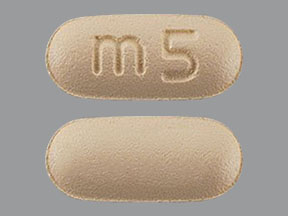
Memantine Coupons & Savings Card – Discount Prices from $29.74
Generic for: Namenda, Namenda titration pak
My prescription
Edit
5MG, Memantine (180 Tablets)
Select pharmacy

CVS
$33.72
COUPON PRICE
Albertsons
$29.74
COUPON PRICE
Walgreens
$30.35
COUPON PRICE
Walmart
$35.35
COUPON PRICEMemantine savings card
Show this card to your pharmacist
Albertsons
$29.74
BIN
ID
PCN
GRP
019876
LHB65E1DC5
CHIPPO
LHX
Powered by
More prescriptions for dementia
More prescriptions for dementia
Price history for Namenda Titration Pak (brand) & Memantine (generic)
180 Tablets, 5MG
Average retail price for Namenda Titration Pak
Average retail price for Memantine
Average SaveHealth price for Memantine
Our price history data is based on aggregated prescription data collected from participating pharmacies in America. Our prescription data updates daily to reflect the latest price changes. If you notice a missing data point, it means there wasn't sufficient data available to generate a monetary value for that date.
We analyzed Memantine prices for (5MG, 180 Tablets) over the last 12 months. The average retail price was $55.04, while the average price using the SaveHealth discount card was $48.30. That's a savings of approximately 12.25% when using our Memantine coupon.
Compared to the generic version, Namenda Titration Pak had an average price of $957.50 over the same time period. With the SaveHealth savings card, Memantine is 94.96% cheaper on average than Namenda Titration Pak.
*Retail prices are based on pharmacy claims data, and may not be accurate when we don't have enough claims.
Memantine dosage forms
Dosage Quantity Price from Per unit 5MG 180 Tablets $29.74 $0.17 5MG 1 Tablet $2.58 $2.58 5MG 30 Tablets $4.97 $0.17 5MG 50 Tablets $6.62 $0.13 5MG 60 Tablets $7.45 $0.12 5MG 90 Tablets $16.42 $0.18 5MG 100 Tablets $17.25 $0.17 5MG 120 Tablets $18.90 $0.16 5MG 500 Tablets $46.90 $0.09 5MG 1000 Tablets $67.50 $0.07
| Dosage | Quantity | Price from | Per unit |
|---|---|---|---|
| 5MG | 180 Tablets | $29.74 | $0.17 |
| 5MG | 1 Tablet | $2.58 | $2.58 |
| 5MG | 30 Tablets | $4.97 | $0.17 |
| 5MG | 50 Tablets | $6.62 | $0.13 |
| 5MG | 60 Tablets | $7.45 | $0.12 |
| 5MG | 90 Tablets | $16.42 | $0.18 |
| 5MG | 100 Tablets | $17.25 | $0.17 |
| 5MG | 120 Tablets | $18.90 | $0.16 |
| 5MG | 500 Tablets | $46.90 | $0.09 |
| 5MG | 1000 Tablets | $67.50 | $0.07 |
| 10MG | 1 Tablet | $2.58 | $2.58 |
| 10MG | 30 Tablets | $4.77 | $0.16 |
| 10MG | 50 Tablets | $6.28 | $0.13 |
| 10MG | 60 Tablets | $7.03 | $0.12 |
| 10MG | 90 Tablets | $15.80 | $0.18 |
| 10MG | 100 Tablets | $16.55 | $0.17 |
| 10MG | 180 Tablets | $26.16 | $0.14 |
| 10MG | 500 Tablets | $46.01 | $0.09 |
| 10MG | 1000 Tablets | $67.50 | $0.07 |
| 10MG | 3000 Tablets | $149.90 | $0.05 |
| 28 x 5 MG &21 x 10 MG | 49 Tablets | $18.14 | $0.37 |
